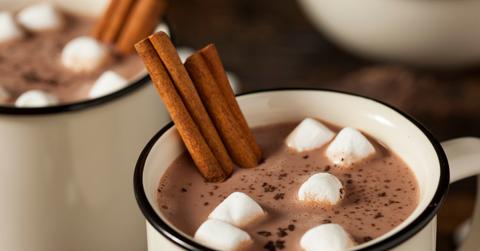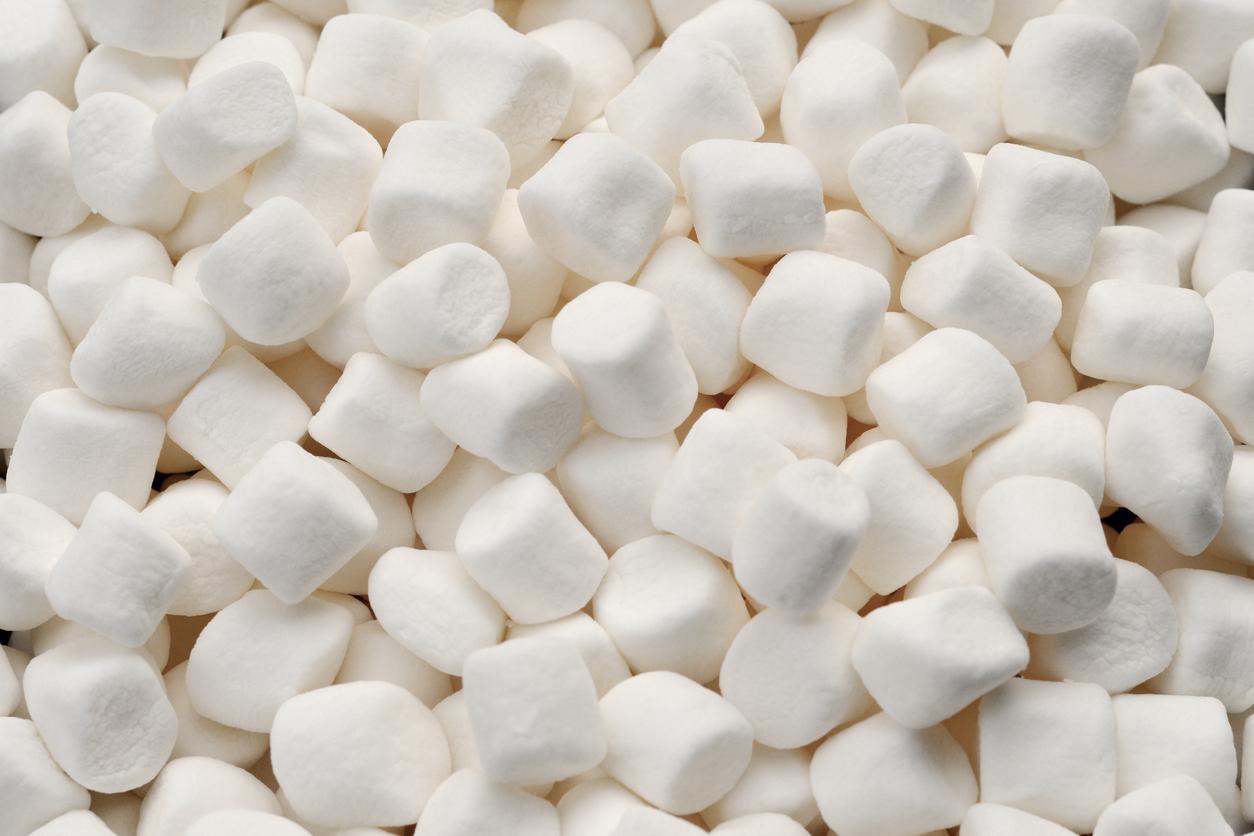This Gross Ingredient Means Most Marshmallows Aren't Vegan
Conventional marshmallows contain one super gross ingredient.
Published Oct. 18 2024, 1:00 p.m. ET

Whether you are preparing to make a delicious cup of vegan hot chocolate in the fall or a plate of s'mores with family and friends, you know that the right marshmallow is crucial to a delicious concoction. For those who follow a vegan lifestyle, not all marshmallows have a place in your cup or on your dessert plate.
If you're new to the vegan marshmallow game, you're likely wondering what makes a vegan marshmallow vegan and what separates it from conventional marshmallows.
From the nutritional differences to the ethical ones, we've outlined what makes a vegan marshmallow so unique and free of the cruelty that other, non-vegan marshmallows contain. So grab a cup of cocoa, fire up a plate of s'mores, and keep reading to learn all about marshmallows and their vegan counterparts.

Are marshmallows vegan?
Unless the bag of marshmallows in question specifically features a vegan label, it is safe to assume that most marshmallows are not vegan.
What makes vegan marshmallows vegan?
In general, what makes vegan marshmallows vegan is being free gelatin.
According to Sentient Media, the gelatin found in non-vegan marshmallows can be comprised of an amalgam of the bones of pigs or cows, as well as the skins from pigs, cows, or fish.
To obtain gelatin, various animal parts — which may be sourced from animal waste materials or the byproducts after the animals have been killed — are boiled and the protein is extracted. Yes, really.
According to an article in ScienceDirect, gelatin is utilized to provide texture and stability in different food products, as well as to prevent discoloration and spoiling in meat.
That's not all. In addition to using gelatin as a thickening agent, non-vegan marshmallows may contain "natural flavors" which, according to By Any Greens Necessary, is a mysterious additive that may be derived from animals. Finally, as Green Queen explains, in some instances, conventional sugar is not considered vegan due to its filtration process.
Fortunately, there are many plant-based alternatives to gelatin, including: agar-agar, carrageenan, pectin, cornstarch, xantham or guar gum, or arrowroot, according to Sentient Media.

There are various vegan marshmallow brands in stores.
Of course, making the perfect plate of gooey vegan s'mores to celebrate the summer season requires the right brand of vegan marshmallows. Dandies is perhaps the most popular brand of vegan marshmallows, and they are easy to find in markets and online. They are certified vegan, gluten-free, kosher, and Non-GMO Project verified.
Trader Joe's also makes vegan marshmallows.
You can also follow a recipe to make your own vegan marshmallows.
The blog Healthy Little Vittles has a recipe to make vegan marshmallows at home, requiring just five ingredients. PlantYou also has a vegan marshmallow recipe, with the option to add beetroot powder to give your vegan marshmallows a pink color, with the added benefit that it may add a stabilizing element to the texture, as well.